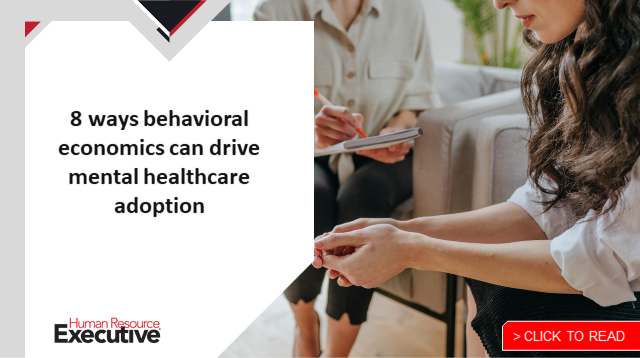Any cancer survivor will tell you that facing your mortality brings your values and priorities into sharp focus. But never before have we seen such a dramatic shift, as the pandemic pushes the global workforce into a quest for a sense of purpose, contributing to the Great Resignation. For instance, a study by McKinsey found that 70% of employees are now reflecting on their purpose because of COVID-19.
Purpose is an overarching sense of what matters in a person’s life—it’s driven by core values and gives life a sense of meaning. It’s different from happiness, which is a fleeting sense of pleasure or joy. They are even different neurologically, activating separate parts of the brain. Purpose acts as a North Star, even helping us know when we have veered off the path and are no longer “on purpose” in our lives and work.
This quest for purpose didn’t just suddenly appear. In 2015, author Aaron Hurst stated, “We are in the early days of emergence of a ‘purpose economy.’ It is likely that in fewer than 20 years, the pursuit of purpose will eclipse the third American economy—the Information Economy.” It seems the pandemic accelerated his prediction.
Burnout has played a role and is the No. 1 reason employees cite for leaving their current jobs. Burnout was already on the rise before the pandemic but now has hit extraordinary levels. Last spring, up to 70% of people were experiencing burnout—new studies show that it’s risen to 89%. Burnout is a diagnosable state of exhaustion that depletes your sense of accomplishment, joy and compassion. Focusing on a sense of purpose can help restore the damage done by burnout.
 Today, purpose plays a critical role in recruiting and retaining talent. Millennials, who will make up 75% of the workforce by 2025, rate “finding work that is meaningful” as one of their top three factors for determining career success. Researchers at McKinsey found that millennials see their work as their life calling, and Gen Z is even more focused on purpose. A study by WeSpire states that Gen Z is “the first generation to prioritize purpose over salary. They read mission statements and values documents to select where they work and want their employer’s values to match their values.”
Today, purpose plays a critical role in recruiting and retaining talent. Millennials, who will make up 75% of the workforce by 2025, rate “finding work that is meaningful” as one of their top three factors for determining career success. Researchers at McKinsey found that millennials see their work as their life calling, and Gen Z is even more focused on purpose. A study by WeSpire states that Gen Z is “the first generation to prioritize purpose over salary. They read mission statements and values documents to select where they work and want their employer’s values to match their values.”
Having a sense of purpose leads to all kinds of positive benefits for both employees and the organizations they work for. Consider these compelling findings:
- A sense of purpose offers neural protection from brain injuries, illness, stroke and even age-related decline.
- Purpose improves physical health by reducing cardiovascular disease, improving our immune response and even boosting longevity.
- Purpose improves mental health, decreasing isolation, depression and anxiety.
Organizations benefit from being purpose-driven, including in areas like employee retention, consumer loyalty, innovation and financial performance.
Employee Retention
McKinsey found that employees who say they live their purpose through work are six times more likely to stay at the company and 6.5 times more likely to report higher resilience. Deloitte found that purpose-driven companies had 40% higher retention than their competitors.
Consumer Loyalty
One survey by Cone found that 66% of consumers (91% of millennials) would switch a product they currently buy to another from a purpose-driven company. After learning that a brand is socially responsible, Gen Z consumers are 85% more likely to trust a brand, 84% more likely to buy their products and 82% more likely to recommend it to others.
Innovation
Purpose-driven companies report 30% higher levels of innovation. One Harvard study found that 53% of executives at purpose-driven companies feel their organization is successful with innovation and transformation compared to 19% at companies that have not focused on purpose.
The most compelling research on financial performance on the NASDAQ and NYSE is the Torrey Project, which compared four sets of companies over the past 20 years. The top performer? The purpose-driven companies, with stock prices 100% higher than the S&P 500.
Leaders would do well to invest in purpose at this time in history. Some critical actions include:
- Help employees explore and identify their sense of purpose and find alignment with their work at the organization.
- Invest time and energy in identifying the organization’s purpose, including the social good it hopes to make.
- Design environments and experiences that help people reconnect with their colleagues because relationships are essential to making work meaningful.
- Identify and address violations of the organization’s purpose and values, as perceived hypocrisy seems to be the most damaging to engagement and retention.
- Train managers to have authentic conversations about purpose and meaningful work, and most importantly, how to cultivate purpose in their people and teams.
Organizational psychologist Anthony Klotz, who coined the term the Great Resignation, says this:
“One hopefully silver lining of this horrible pandemic would be if the world of work transitioned to a more healthy, sustainable place for employee wellbeing.” Purpose will be at the core of this transformation.
Author Dr. Britt Andreatta, CEO of 7th Mind Company, will share her research on the brain science of purpose and how it impacts people, organizations and industries in her HR Tech Virtual keynote titled “Wired to Become: The Neuroscience of Purpose” at 11 a.m. March 2. Register here to join us.


